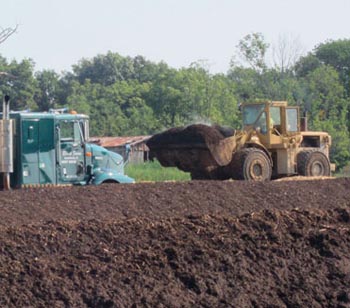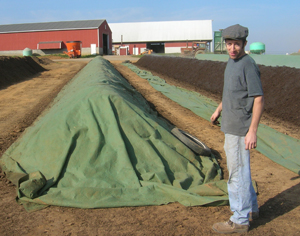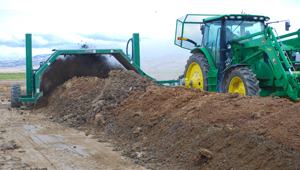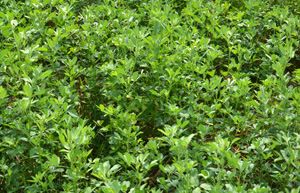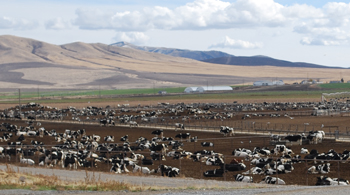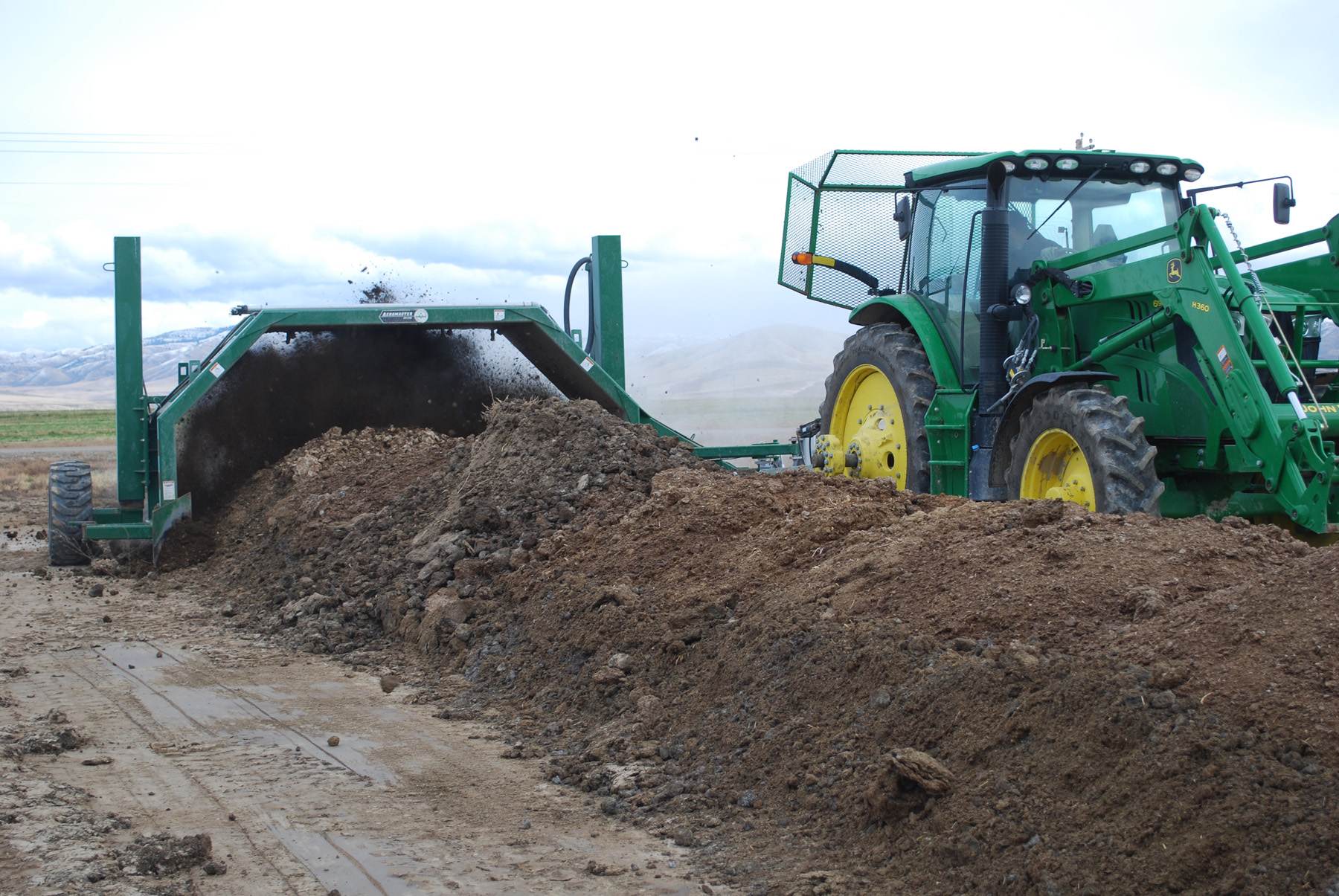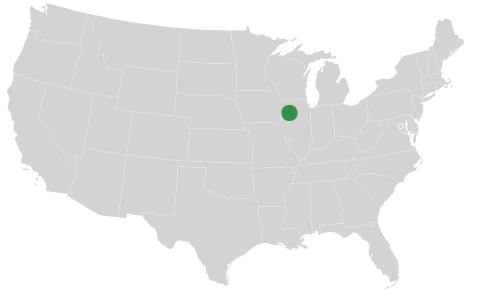In the summer of 2012 the Continental U.S. faced its worst drought in recent history. Dry conditions across the Midwest decimated many farmers' grain harvests. Illinois farmer Scott Block was among the victims of the drought and suffered severe crop losses, particularly among his corn and soy crops. But thanks to his on-farm composting program, Block found a way to cut his losses in the aftermath of the drought, and in the case of a late planted oat forage, he discovered the potential of compost to increase the yield of forage crops on his farm.
Yield of Forage Crops Increased by High Quality Feedlot Waste Compost
Tags: soil fertility, fertilizer, on-farm composting, feedlot industry
Humus Compost Tea Raises Relative Feed Value of Alfalfa
Because of its high feed value alfalfa is one of the most important feed crops grown in the U.S. With the price of commercial fertilizer on the rise, some farmers have turned to high-quality compost as an on-farm alternative to boost their alfalfa yields, improve their fertilizing practices, and reduce their dependence on external inputs.
Tags: soil fertility, on-farm composting, humus compost, compost tea
Composted Manure and Dairy Waste Make an Effective Alfalfa Fertlizer
With high levels of digestible calcium, protein, and fiber, Alfalfa is one of the most important and widely-grown feed crops in the U.S., ranking as the third most valuable crop behind only corn and soybeans. Whether they're producing it for their own livestock, or as a cash crop, it is important for farmers to maintain healthy plants and profitable yields. A typical alfalfa planting lasts for several years, making healthy, long-lived plants even more important. An Idaho dairy farmer has found that by composting his manure and dairy waste, he's able to transform it into a rich, balanced fertilizer to enhance his alfalfa crop.
Tags: soil fertility, fertilizer, on-farm composting, dairy industry
Composting Keeps Dairy Farms with Alfalfa Profitable
A dairy farm relying on alfalfa for high quality feed is composting to cut fertilizer costs and seeing dramatically increased alfalfa yields. This is good news for dairy farms feeling the pinch of high fertilizer and feed costs.
When Gary Smith and his son Jason Smith began composting seven years ago, it was to fulfill their farm's need for organic fertilizer. They partnered with a cattle feed lot which provided them with huge volumes of manure and spent bedding as raw materials for their compost. After purchasing an Aeromaster compost turner and completing a training session with Midwest Bio Systems, the Smiths were soon producing high quality compost which boosted the yields on their farm. Neighbors began to take notice.
Today they have a booming business making and selling compost to other farmers, organic and not. Jason Smith has already hauled compost as far as 60 miles for some customers, and the demand is such that he takes orders for compost up to four months in advance. Alfalfa growers are one group of customers who keep coming back for more.
Tags: soil fertility, sustainable farming, fertilizer, on-farm composting, dairy industry
Dairy Waste Recycled into Bedding for Significant Savings
The cost of dairy bedding is on the rise and it is not expected to drop any time soon. The pinch is felt by farmers like Brent Webb who runs a 1,200 cow dairy with his three brothers and beds his cows in open corrals and freestalls. Webb has an edge over rising costs, however. He's found that his composting program has given him a way to recycle his dairy bedding almost endlessly to bring him significant savings and improved cow health.
Tags: sustainable farming, fertilizer, dairy waste, on-farm composting
Manure vs. Compost: Dairy Waste Transformed into High Quality Compost
In Idaho cousins Brent and Mark Webb both own and operate large dairies. Brent has a herd of 1,200 cows, while Mark has 1,800. Raw manure has always been on hand in large quantities, and both Brent and Mark used to spread it on their fields until they noticed it was having detrimental effects on the health of their crops. They found a solution in composting. Composting has transformed what was a waste product into a high quality fertilizer asset, produced using only ingredients from their farms. This helps them become independent from external inputs.
Tags: soil fertility, sustainable farming, fertilizer, dairy waste, on-farm composting, humus compost
When dairy farmer Mark Webb, owner of an 1,800 cow dairy in Idaho, switched from a confined facility to open corrals, he found himself faced with a manure problem, namely far too much of it.
Webb's strategy to deal with his dairy waste, which consists of both manure and spent bedding, was to haul it onto portions of his 4,000 acres of cropland. After several years of these heavy manure applications, Mark noticed this practice was having a negative impact on the health of his crops, and soil. And the manure was still “piling up,” literally. Webb needed another solution to deal with his manure problem. He thought composting with a mechanical tractor-pulled compost turner might be the answer.
Tags: composting equipment, sustainable farming, on-farm composting, compost turners, dairy industry
Composting Helps Dairy Farms Cut Costs and Increase Efficiency
With rising feed and fertilizer costs and a fluctuating commodities market, 2012-2013 is shaping up to be a hard year for dairy farmers. Droughts in the Midwest have drastically increased feed prices, and forced some farmers to switch feeds, from corn to wheat. Fertilizer prices continue their upward price trend, making it difficult for dairies growing their own feed to be profitable. Yet two dairy farms in Idaho have found a way to reduce costs and become independent from buying fertilizers, by producing their own on the farm. And they're doing it through composting.
Tags: composting equipment, sustainable farming, fertilizer, on-farm composting, dairy industry

